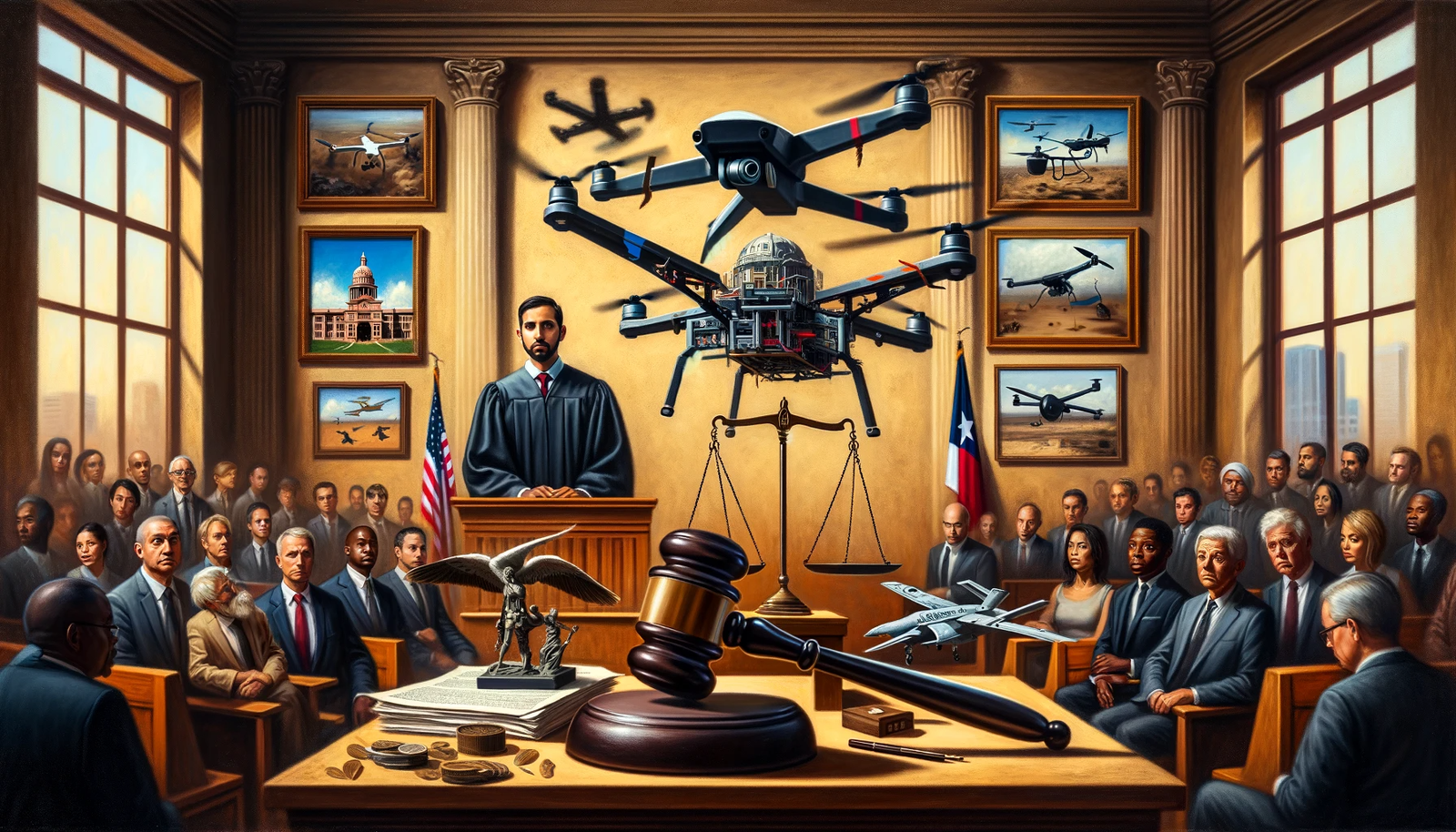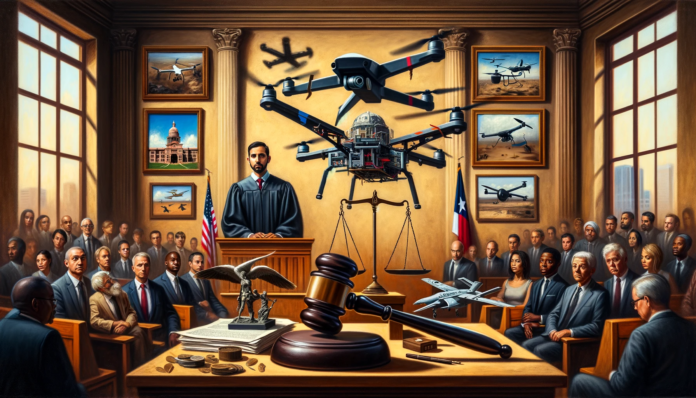
In a recent development, a federal appeals court panel has made a decision that is sure to spark controversy and debate. The panel has re-instated a Texas drone law that was previously deemed unconstitutional. The law, known as Chapter 423 of the Texas Government Code, places restrictions on the use of drones by journalists in their reporting. However, the appeals court ruling now allows journalists to challenge the law on a case-by-case basis. The plaintiffs in this case include freelance photojournalist Joseph Pappalardo, the National Press Photographers Association (NPPA), and the Texas Press Association. While the law prohibits the use of drones for surveillance and flying above sensitive sites, it has been determined that it does not violate the First Amendment rights of journalists. As a result, journalists in Texas will need to carefully re-evaluate their use of drones and ensure that they avoid any activities that could potentially infringe on the privacy of others. The attorneys for the plaintiffs are currently considering whether to appeal this decision, and it remains to be seen how this controversial law will continue to shape journalistic practices in the state of Texas.
Background
In a recent turn of events, a federal appeals court panel has re-instated the controversial Texas drone law, overturning a previous ruling that had deemed it unconstitutional. This law, known as Chapter 423 of the Texas Government Code, imposes restrictions on the use of drones by journalists in their reporting activities. While its re-instatement is undoubtedly a blow for journalists, the court ruling does offer a glimmer of hope, allowing them to challenge the law on a case-by-case basis.
Plaintiffs in the Case
The plaintiffs involved in this case are a diverse group, all united by their opposition to the Texas drone law. Among them is Joseph Pappalardo, a freelance photojournalist who strongly believes in the power of imagery to convey important stories. Alongside Pappalardo, the National Press Photographers Association (NPPA) and the Texas Press Association have also taken up the mantle of advocating for journalists’ rights in this matter.

This image is property of dronelife.com.
Provisions of the Controversial Texas Drone Law
At the center of this legal battle lies the Texas drone law’s provisions that have sparked significant controversy. The law strictly prohibits the use of drones for surveillance purposes, raising concerns about the potential infringement on journalists’ ability to gather information. Additionally, the legislation imposes restrictions on flying drones above sensitive sites, further limiting the scope of reporters’ drone-related activities.
Court’s Ruling on First Amendment
In deliberating on the constitutionality of the Texas drone law, the appeals court panel ruled that it does not violate the First Amendment rights of journalists. The court’s rationale centers around the distinction between conduct and expression, asserting that the law primarily concerns regulating conduct rather than limiting journalists’ freedom of expression. While this ruling may appear disappointing to those hoping for a different outcome, it does leave room for further legal avenues to be explored.

This image is property of dronelife.com.
Mounting an ‘As-Applied’ Challenge
One glimmer of hope for journalists charged with violating the Texas drone law is the possibility of mounting an “as-applied” challenge. This means that those accused of breaking the law can challenge its application to their specific situation, arguing that it is unconstitutionally applied and therefore should not be enforced against them. This legal recourse provides an opportunity for journalists to present their case and potentially secure a ruling that favors their right to report using drones.
Consideration of Appeal
Following this ruling, the attorneys representing the plaintiffs in this case are currently considering whether to appeal the decision. Appeals offer an opportunity to present additional arguments, introduce new evidence, and potentially achieve a different outcome. Such a decision is not to be taken lightly, as it involves careful deliberation and the weighing of legal strategies and potential implications.
Impact on Journalists in Texas
The re-instatement of the Texas drone law undoubtedly has a significant impact on journalists in the state. As a result, they must now re-evaluate their use of drones and exercise caution in their reporting activities. While the law itself is specific to Texas, this development serves as a sobering reminder to journalists across the country to tread carefully when utilizing drone technology in their work. It is crucial for journalists to prioritize a respect for privacy and avoid any activities that could be perceived as an invasion of privacy.
By navigating this uncertain legal landscape and continuing to uphold the principles of responsible reporting, journalists can strive to adapt and thrive in their mission to provide the public with accurate and insightful news coverage. While the Texas drone law presents new challenges, it is essential that journalists continue to fulfill their role as watchdogs of society, shining a light on critical issues and facilitating informed public discourse.

